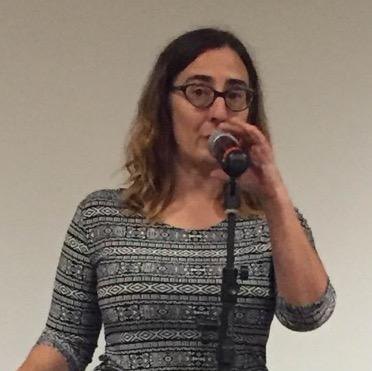October 19, 2015

Banned Books Week is a nationwide event that celebrates the freedom to read books, including novels and educational materials, that have been challenged because someone or some group thought the book was offensive in some way.
Each year the American Library Association's Office for Intellectual Freedom presents a list of the top ten most frequently challenged books from the previous year. The list is meant to inform the public about censorship in libraries and schools.
Many of the books that were read on Sept. 30 were included on ALA's top ten most frequently challenged books of 2014.
CSUN students and faculty came together on Wednesday to discuss American’s freedom to read and the right to grow and learn through this valuable form of art and expression.
Journalism students read aloud snippets of material in a few of these banned books considered too sexual, anti-family, violent, insensitive, homosexual and everything in between perceived as offensive to many.
A few of these excerpts came from the following classics: “To Kill a Mockingbird” by Harper Lee, “The Great Gatsby” by F. Scott Fitzgerald, “The Perks of Being a Wallflower” by Stephen Chbosky and more.
“Reading from ‘The Catcher in the Rye’ gave me a great perspective as to what kinds of things people take offense to, as well as the educational value that some of these offensive texts have,” said journalism student Kenny Rosenberg, referring to the scene about the main character Holden who hires a hooker just so he can have a conversation.
This annual readout took place in the Ferman Presentation Room in the Oviatt Library, where the CSUN Department of Journalism and members of the library staff partnered up in hopes of raising awareness to the importance of having the right to access to all books.
Dr. Elizabeth Blakey, a First Amendment scholar and CSUN journalism professor, noted that Americans have the freedom to decide what is worthwhile to read, and that freedom is a part of an “invisible Constitution.”
In other words, Americans have the freedom to read what they want without government interference. As Blakey said, “We don’t want the books to fall silent.”
American novelist Cecil Castellucci, author of “The Queen of Cool,” shared one of her experiences about an upset aunt who disapproved the novel’s sexually explicit content, resulting in her returning the book.
Although she understood the woman’s frustration, Castellucci said these excerpts are good opportunities to learn about inappropriate things without having to actually engage in them.
“Kids live in the same world that adults do. Where there are rapes, hurricanes, earthquakes, sexual assault, drug abuse. The job of an author is to go to those dark places,” said Castellucci.
People strive to learn through literature the truth about what other people around the world face daily.
“Some of these books document what it’s like to be human and what life is actually about. To deprive people of those experiences is a real shame,” said journalism student Michael Herrera.
Following the event, the Dean of the Oviatt Library, Mark Stover, said “The freedom to say and to write are core values that we have to protect, and even though we want to be sensitive to people whose feelings may be hurt or to those who want to protect their children, we have to always come down on the side of freedom.”
By Stephanie Anderson
